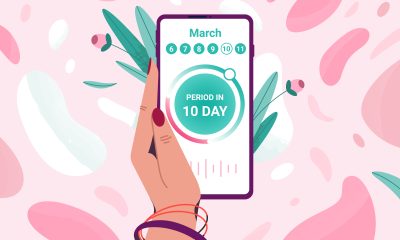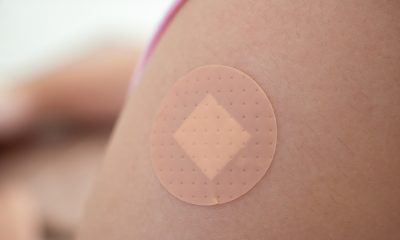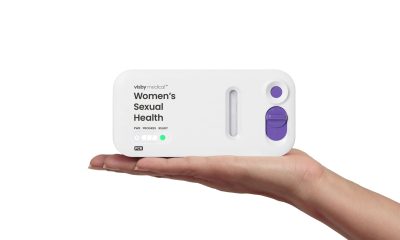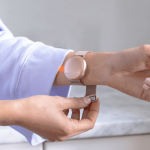News
Elidah expands medical device access to help women with pelvic floor dysfunction
The femtech start-up has announced an agreement with VGM & Associates

A US medical solutions company focusing on delivering treatment devices for female health urinary conditions has announced a national agreement with VGM & Associates to support millions of women across the US.
The agreement between Elidah and VGM will expand the company’s reach for the one in three women who suffer from pelvic floor dysfunction with urinary incontinence.
Elidah’s ELITONE device, indicated for stress urinary incontinence for both over-the-counter and prescription use, primarily reaches consumers through direct-to-consumer marketing.
The partnership with VGM, the largest healthcare Member Service Organization (MSO) in the US, is hoped to significantly broadens its reach beyond e-commerce to the healthcare professional and prescription channel.
Gloria Kolb, CEO of Elidah said: “We are very privileged to partner with VGM & Associates as their reach and focus will enable us to expand our voice and help more women through their prescribers.
“The demand for home medical equipment is fueled by the increasing prevalence of chronic conditions and rising adoption of self-health management. Using a device at-home is a very cost-effective treatment.”
Ralph Lombardo, chief business development officer, said: “This opens up a vast channel for the millions of women who want to receive ELITONE® through their insurer.
“VGM is an excellent and most prominent MSO that helps providers deliver treatment for millions of patients who are in need of gaining access to insurance and Medicare-covered medical devices.”
Nikki Jensen, VP of the Essentially Women network, added: “We are excited about the Essentially Women and Elidah partnership.
“The Essentially Women network has over 750 locations of women’s health suppliers nationwide who focus on delivering female health solutions and treatments.
“We strive to offer clinically proven, FDA-cleared, and Medicare/insurance covered brands and we look forward to launching ELITONE, indicated for urinary incontinence to our providers and the women they serve. Together we hope to make a real difference for the many women who suffer from urinary incontinence.”
Mental health
8 ways to improve mental health access across your menstrual cycle

Have you noticed how some weeks you feel clear-headed and energetic, while others leave you foggy, anxious, or tearful? There’s a reason for that.
Your mental health during PMS and across your entire menstrual cycle isn’t random. It’s deeply connected to how your brain responds to shifting hormone levels.
Estrogen and progesterone don’t just affect your reproductive system; they also influence neurotransmitter activity, brain connectivity, and even the volume of certain brain regions linked to memory, mood, and emotional regulation.
Research shows that grey matter volume in areas controlling emotion changes measurably across the menstrual cycle in relation to hormone fluctuations.
This isn’t about being hormonal. It’s about understanding that your brain operates differently at different times of the month, and that knowledge gives you power.
The menstrual cycle experience is ultimately brain-based. The brain is the control centre for how your body reacts to hormonal changes.
When you understand what’s happening in your brain during each phase, you can work with your cycle. That’s where real cycle mood regulation begins.
Why Your Mental Health Shifts Across Your Cycle
Your menstrual cycle follows a predictable hormonal pattern, and these hormones act as chemical messengers that profoundly affect brain function.
Estrogen rises during the follicular phase and tends to boost serotonin and dopamine, neurotransmitters that support mood stability and motivation.
After ovulation, progesterone takes centre stage during the luteal phase.
As both estrogen and progesterone drop sharply before menstruation, some women experience significant mood dips, brain fog, or emotional sensitivity.
These shifts cause noticeable mental health issues during PMS.
The key takeaway? Hormonal mood swings aren’t a character flaw. They’re neurological responses to predictable biochemical changes, and that means they can be managed with the right brain-first strategies.
8 Ways to Support Mental Health Across Your Menstrual Cycle
1. Track Your Patterns to Predict Your Needs
Understanding your unique cycle mood regulation patterns is the foundation of effective self-care. When you track symptoms across multiple cycles, patterns emerge that help you anticipate challenging phases and plan accordingly.
Record daily mood ratings, energy levels, anxiety or irritability, brain fog, and physical symptoms. After 2-3 cycles, you’ll likely spot trends. Maybe your anxiety peaks 5 days before your period, or brain fog hits mid-luteal phase.
The Samphire app acts as an active diary for your cycle, helping you spot when symptoms are likely, plan for focus days and rest days, and build habits around your natural rhythms.
2. Adjust Your Exercise Routine to Match Your Energy
Movement is one of the most powerful tools for mental health during PMS and beyond, but the type and intensity should shift with your cycle phases.
Follicular Phase (Days 1-14): As estrogen rises, try high-intensity interval training, strength training with heavier weights, or running.
Luteal Phase (Days 15-28): As progesterone dominates and energy dips, consider moderate cardio like walking or swimming, yoga, or lighter strength training.
Menstrual Phase (Days 1-5): Gentle movement like restorative yoga or walking can ease cramps and support mood without depleting energy.
Exercise stimulates endorphins and brain-derived neurotrophic factor (BDNF), both of which support neuroplasticity, or he brain’s ability to adapt. Research consistently shows that regular physical activity reduces symptoms of anxiety and depression.
3. Eat to Nourish Your Brain Chemistry
Your brain needs specific nutrients to manufacture neurotransmitters and regulate mood effectively. Hormonal mood swings can be amplified by nutritional deficiencies or blood sugar instability.
|
Nutrient |
Brain Benefit |
Food Sources |
|
Omega-3 fatty acids |
Reduces inflammation; supports serotonin |
Salmon, walnuts, flaxseeds |
|
Magnesium |
Calms the nervous system; reduces PMS |
Dark leafy greens, pumpkin seeds, dark chocolate |
|
B vitamins (B6) |
Essential for neurotransmitter production |
Eggs, legumes, bananas |
|
Complex carbs |
Stabilises blood sugar; supports serotonin |
Oats, quinoa, sweet potatoes |
During the luteal phase, when serotonin naturally dips, eating complex carbohydrates can help maintain levels and reduce irritability. Avoid excessive caffeine and refined sugar, which can worsen anxiety and create energy crashes.
4. Prioritise Sleep Hygiene Throughout Your Cycle
Sleep disturbances are common across the menstrual cycle, particularly during the luteal phase. Poor sleep directly impacts mood regulation, making existing hormonal mood swings worse.
Sleep strategies for better cycle mood regulation:
- Maintain consistent sleep and wake times
- Cool your bedroom to 65-68°F, especially during the luteal phase
- Limit screens 1-2 hours before bed
- Create a wind-down routine with gentle stretching or meditation
- Avoid caffeine after 2 PM
Research shows that sleep deprivation reduces activity in the prefrontal cortex while increasing amygdala reactivity, making you more emotionally reactive. Quality sleep gives your brain the resources it needs for effective cycle mental health care.
5. Practice Mindfulness and Stress Reduction Techniques
Chronic stress exacerbates mental health during PMS by dysregulating the hypothalamic-pituitary-adrenal axis, the same system that controls your menstrual cycle.
Mindfulness meditation increases grey matter in brain regions involved in emotional regulation. Just 10-20 minutes daily can reduce anxiety and improve your capacity to manage hormonal mood swings.
Evidence-based techniques to try:
- Breath work: Box breathing (inhale for 4, hold for 4, exhale for 4, hold for 4) activates the parasympathetic nervous system
- Body scan meditation: Systematically relaxing each part of your body reduces physical tension
- Journaling: Writing about emotions helps process them and identify patterns
- Progressive muscle relaxation: Tensing and releasing muscle groups calms the nervous system
6. Build Strong Social Connections
Social support isn’t just emotionally comforting. It’s neurologically protective. Strong relationships activate brain regions involved in reward processing and stress regulation, helping safeguard mental health during PMS.
During phases when you feel more withdrawn, maintain connection in manageable ways: texting a friend, attending a yoga class, or scheduling video calls during high-energy weeks.
Let trusted friends or partners know that your mood and social energy fluctuate with your cycle. Simply having someone understand why you need more space in certain weeks reduces guilt and anxiety.
7. Consider Cognitive Behavioural Strategies
Cognitive Behavioural Therapy (CBT) techniques are particularly effective for cycle mental health care because they help you identify and challenge thought patterns that worsen mood symptoms.
Simple CBT strategies for cycle mood regulation:
- Identify the thought: When you notice mood shifting, pause and ask, “What am I thinking right now?”
- Challenge the thought: Is there evidence for this thought? Am I jumping to conclusions?
- Replace with a balanced thought: “I feel irritable right now, and that’s normal for this phase of my cycle. This feeling will pass.”
This practice builds the prefrontal cortex’s capacity to regulate emotional responses, essentially training your brain for better emotional control.
8. Try Brain-Based Neuromodulation
Traditional approaches to cycle mood regulation typically focus on hormonal interventions or lifestyle changes alone. Samphire takes a different approach: targeting the brain directly using gentle neurostimulation.
Nettle™ uses transcranial direct current stimulation (tDCS), a non-invasive technology that delivers gentle electrical currents to specific brain regions involved in mood regulation and pain processing.
How brain-based solutions support mental health during PMS:
- Hormone-free and drug-free: Nettle™ provides relief without altering your natural cycle
- Clinically validated: Studies show that tDCS can reduce symptoms of anxiety, depression, and pain
- Convenient: Just 20 minutes a day, 5 days per cycle, from home
- Works with neuroplasticity: Repeated use helps retrain neural pathways for lasting improvements
When to Seek Professional Support
While these strategies can significantly improve mental health during PMS for many women, some symptoms warrant professional evaluation. Seek help if you experience severe mood symptoms interfering with daily life, thoughts of self-harm, or symptoms that don’t improve after 3 months.
Your Brain, Your Cycle, Your Control
Hormonal mood swings and mental health during PMS challenges aren’t weaknesses. They’re neurological responses to predictable biochemical changes.
When you understand what’s happening in your brain at each phase, you gain the power to support yourself effectively.
At Samphire, the focus is on the neuroscience of women’s health, because to truly understand and improve hormonal wellbeing, you need to start where hormones start: in the brain.
Samphire combines cutting-edge science with time-tested practices to deliver relief for women throughout the cycle.
Ready to experience brain-first cycle mood regulation?
Try Samphire Neuro Nettle™ risk-free with their 90-day trial and support your brain across every phase.
News
The silent wait: Why women deserve faster, specialist care

By Dr Hisham Abouzeid, consultant in obstetrics and gynaecology, Transform Femme
Across the UK, women are facing an unacceptable reality when it comes to their health.
From pelvic floor problems and heavy bleeding to chronic pain and postnatal complications, millions of women are living with treatable conditions that are simply not being treated, often for months or even years.
As a surgeon with more than 25 years’ experience, I have seen first-hand how delays in women’s health services affect every aspect of life, both physical and emotional.
Women come to me exhausted, frustrated and often embarrassed.
They are not just battling medical symptoms, they are struggling with the sense that their pain and their needs have been ignored for too long.
Right now, more than 750,000 women in the UK are waiting for hospital gynaecology services, including routine, non-cancer referrals.
In England alone, over 580,000 people are waiting for non-cancer gynaecology treatment, with almost half waiting well beyond the NHS target of 18 weeks.
Shockingly, more than 18,000 women have been waiting over a year.
These numbers are not just statistics. They represent women living with real suffering.
Research from Endometriosis UK found that 80 per cent of women waiting for treatment said their mental health had worsened, and 77 per cent said their work and daily lives had been affected.
These are mothers, daughters, partners and professionals whose pain is being normalised or dismissed.
The reasons for these delays are complex.
Overstretched NHS resources, lack of specialist provision and a system that often does not prioritise the specific needs of women’s health all play a part.

Dr Hisham Abouzeid
But the result is simple: women are waiting far too long to be heard, diagnosed and treated.
Women’s health issues are unique, deeply personal and often intertwined with hormonal, reproductive and emotional wellbeing.
They require the expertise of clinicians who not only understand the anatomy but also the impact that these conditions have on quality of life.
Specialist clinics can provide the focus and speed that general services struggle to deliver.
With dedicated gynaecologists and surgeons, we can diagnose and treat faster, offer continuity of care and, crucially, create a space where women feel seen and understood.
Delays in treatment do more than prolong discomfort. They allow conditions to worsen.
Pelvic floor damage can become irreversible, chronic pain can become debilitating, and emotional distress can spiral into anxiety or depression.
Early intervention does not just improve outcomes, it can change lives.
It is this urgent need for specialist, compassionate care that inspired the creation of Transform Femme, a new standalone UK service dedicated entirely to women’s health and wellbeing.
At Transform Femme, our aim is to give women rapid access to world-class surgical and non-surgical treatments delivered by leading GMC-registered surgeons and gynaecologists.
From pelvic floor repair and hysterectomy to labiaplasty and vaginal tightening, every procedure is delivered with precision, sensitivity and respect.
We believe in treating the whole person, not just the condition.
Our clinics provide luxurious, CQC-registered environments designed to promote comfort and calm.
Through Homecare+, patients can receive pre- and post-operative support in the privacy of their own homes.
With transparent, fixed pricing, there are no hidden costs or surprises, providing complete peace of mind.
Most importantly, we remove one of the biggest barriers to care: time.
Consultations, diagnostics and surgery can often take place within weeks, not months. For many women, that speed can be life-changing.
So many women suffer in silence with gynaecological issues that affect their confidence, health and everyday lives.
Our mission is to provide a safe and supportive space where women feel truly heard.
We combine medical expertise with empathy and professionalism, helping patients regain their comfort and most importantly their confidence
This ethos is shared by our entire team.
Every woman who walks through our doors deserves to be listened to without judgement and treated with the dignity and care she has often been denied elsewhere.
Specialist care for women is not just about medicine, it is about empowerment.
When women regain comfort, confidence and freedom from pain, they reclaim their lives. They reconnect with their partners, play with their children, return to work, and rediscover their sense of self.
Transform Femme is about more than procedures. It is about partnership, empathy and giving women back the confidence to live fully and freely.
We have reached a point in women’s healthcare where waiting should no longer be the norm. Women deserve timely, expert care that honours both their physical and emotional wellbeing.
Because when women are cared for properly, they do not just heal, they thrive.
About the author
Dr Hisham Abouzeid is a highly qualified with over 25 years of experience in women’s health and surgical procedures.
He is a Fellow of the Royal College of Obstetricians and Gynaecologists (FRCOG).
For more information visit Transform Femme
Insight
Rem3dy Health secures £1.4m in new funding

Midlands-founded health-tech scale-up Rem3dy Health has landed £1.4m in new funding.
The announcement was made at Birmingham Tech Week, as part of their Scale-Up Summit.
During the event, Founder and CEO Melissa Snover confirmed that the Amsterdam-based Borski Fund, which specialises in backing high-growth, women-led ventures, has invested £900,000 in Rem3dy Health, alongside a further £500,000 investment from Future Planet Capital Regional just a few weeks prior.
Snover said: “This latest round marks a huge milestone not just for Rem3dy Health, but for the Midlands innovation scene.
“Both Borski and Future Planet Capital share our belief that world-class innovation doesn’t have to start – or stay – in London.
“This investment proves that regional founders can raise global capital and scale globally from right here in Birmingham.”
Together, the £1.4 million injection from both Borski Fund and Future Planet Capital Regional will accelerate global expansion and R&D for the company’s personalised nutrition brand Nourished, which uses patented 3D printing technology to deliver personalised, preventative health solutions on demand.
Jen Roberts-Woods, Investment Associate at Borski Fund said: “From our first meeting, Melissa’s vision and drive towards realising Rem3dy Health’s global potential was unmissable.
“The Borski Fund looks forward to working closely with Rem3dy Health as it continues to scale and shape the future of personalised health innovations.”
Rupert Lyle from Future Planet Capital Regional, which manages the West Midlands Co-Investment Fund, added: “Through the West Midlands Co-Investment Fund, we’re proving that the region can be a launchpad for world-class innovation.
“Rem3dy Health’s growth story is an outstanding example of what happens when regional founders are backed by both local and global capital: the outcomes are both commercially and socially transformative.”
-

 News3 weeks ago
News3 weeks agoDozens of women report suffering painful burns after using Always sanitary towels
-

 News4 weeks ago
News4 weeks agoWomen’s health innovations recognised in TIME’s Best Inventions 2025
-

 News3 weeks ago
News3 weeks agoCutting through the noise in femtech – key takeaways from Women’s Health Week 2025
-

 Mental health4 weeks ago
Mental health4 weeks agoMenstrual cycle affects women’s reaction time, study finds
-

 News2 weeks ago
News2 weeks agoAI embryo selection tool wins European approval
-

 Insight3 weeks ago
Insight3 weeks agoScientists develop breakthrough approach to detecting endometriosis in menstrual blood
-

 News2 weeks ago
News2 weeks agoTestosterone patch shows promise for menopausal women
-

 Features2 weeks ago
Features2 weeks agoFrom SEO to GEO: How women’s health brands can get found in the age of AI

























